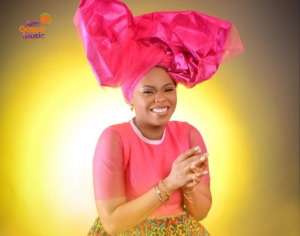Let’s be honest — we live in a world where lines are getting blurry. From fashion to music, and even in the gospel space, it’s sometimes hard to tell what’s what. But as gospel artists, there’s a sacred calling that should not be compromised for trends, applause, or vibes.
Now, this isn’t about being judgmental or acting holier-than-thou. It’s about wisdom, intentionality, and preserving the message of the gospel. If you carry the banner of Christ through your music, you’re not just an entertainer — you’re a minister. And ministry demands a different kind of discipline.
We’ve seen situations where gospel artists are spotted at secular award shows that have absolutely nothing to do with kingdom values. Some go as far as celebrating lyrics that promote lifestyles completely opposite to the gospel — think promiscuity, pride, profanity, or even drugs. Now, imagine a young believer scrolling on Instagram and seeing their favorite gospel artist vibing to a song that glorifies those things. Confusing, right?
Let’s take it further. You see some gospel singers constantly dancing to trending secular songs in public places, club-like events, or on TikTok, just to “gain reach” or “go viral.” But at what cost? Are we trying to fit in so badly that we start looking and sounding like everyone else? Romans 12:2 clearly tells us not to conform to the patterns of this world. So if the world is clapping for us because we look just like them, maybe we need to check what message we’re truly preaching.
This doesn’t mean we should act like islands. No. Jesus ate with sinners, but He didn’t blend with them. His presence brought transformation, not compromise. So, if a gospel artist wants to associate with someone in the secular space, let it be with purpose — to shine the light, not dim it.
There are also spiritual implications. Gospel music is not just about melodies; it’s about the message and the Spirit behind it. Partnering or mingling with people whose values directly oppose the gospel can water down your anointing and confuse your audience. Some fans won’t say it, but they’re watching and forming silent opinions.
Also, it’s not every platform that should host a gospel artist. Some shows may boost your fame, but damage your credibility as a vessel. Ask yourself, “Is this glorifying God, or just glorifying me?”
This is not to say gospel artists should be hidden or uptight. No, you can be relevant and visible without being compromised. Artists like Nathaniel Bassey, Dunsin Oyekan, and Mercy Chinwo have shown that it’s possible to be impactful without blending in. They’ve stayed consistent, and their fruit speaks for them.
At the end of the day, gospel music is not just another genre — it’s a calling. So dear gospel artist, before you show up at that next secular event or jump on that viral challenge, pause and ask: “Is this reflecting Christ or just chasing clout?”
Because your light is too precious to dim.








